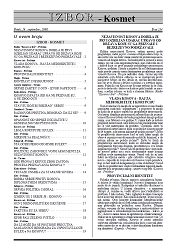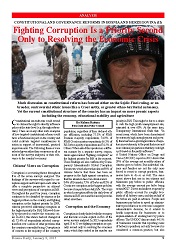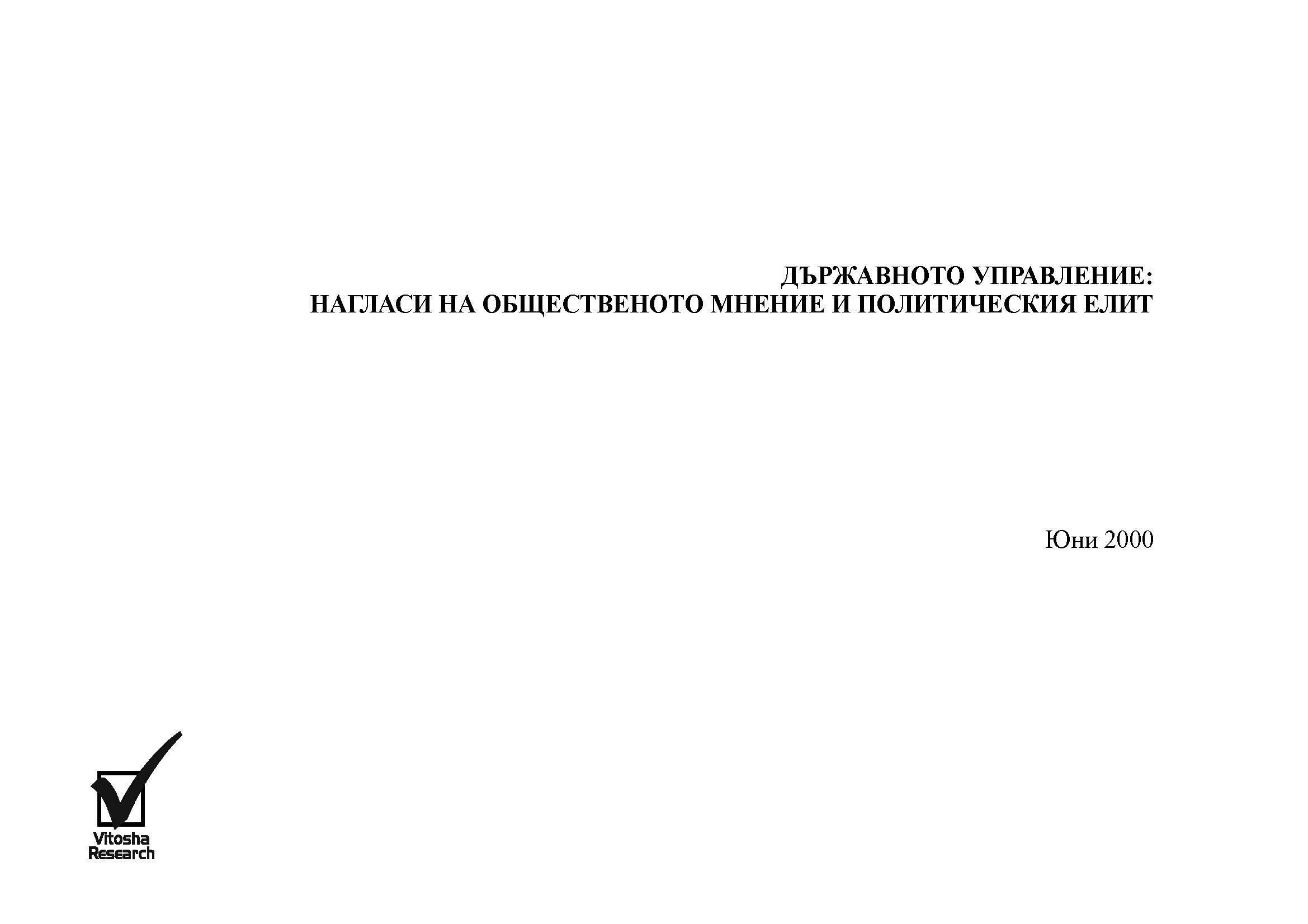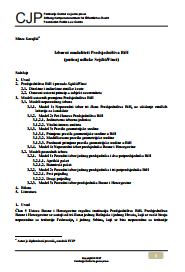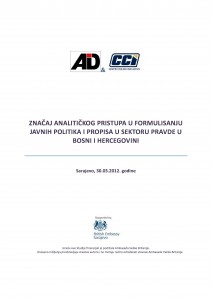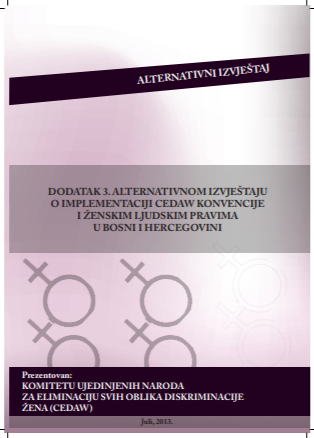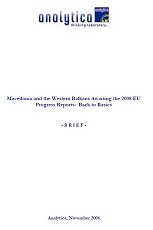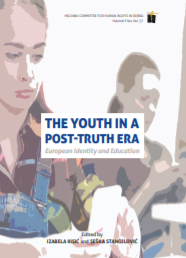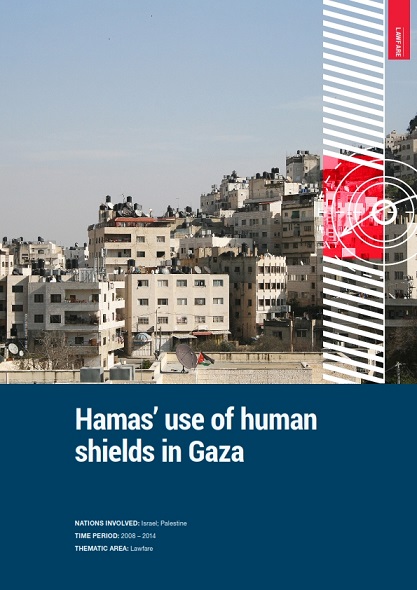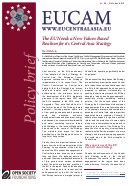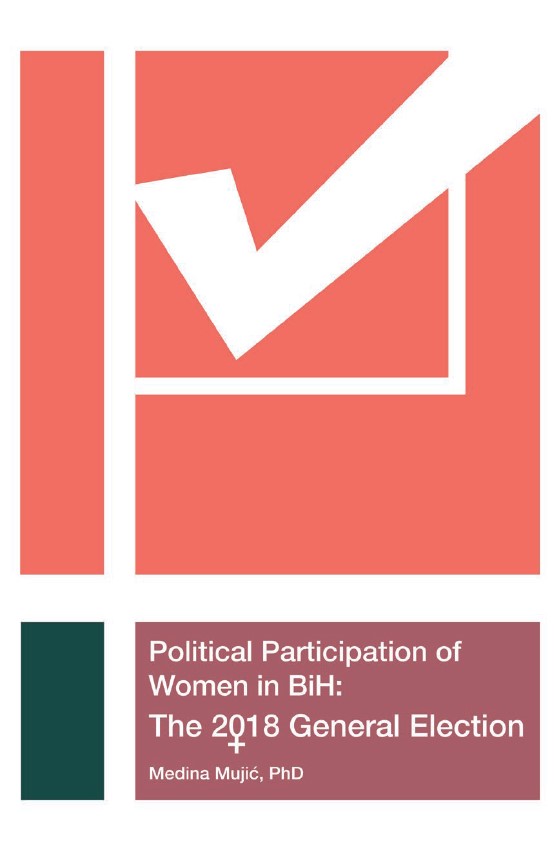Author(s): Author Not Specified / Language(s): Bosnian
Usljed uočenih nedostataka, nedosljednosti i relativno niskog sveukupnog kvaliteta usvojenih propisa na svim nivoima vlasti u BiH, Parlamentarna skupština BiH, kao najviši zakonodavni organ vlasti BiH, usvojila je u martu 2004. godine Zaključak o potrebi unapređenja stanja u oblasti izrade propisa u institucijama BiH, unificiranjem i modernizacijom metoda i tehnika njihove izrade, s ciljem što efikasnijeg ispunjavanja uslova i obaveza vezanih za pristupanje BiH Evropskoj uniji, kao i obaveza koje su preuzete drugim međunarodnim dokumentima. Također, temeljem spomenutog Zaključka, Parlamentarna skupština BiH je u januaru 2005. godine usvojila “Jedinstvena pravila za izradu propisa u institucijama Bosne i Hercegovine” (“Službeni glasnik BiH”, broj 11/05) koja, po uzoru na slična rješenja u zemljama Evropske unije i regiona, uvodi u proces izrade propisa niz inovativnih, lex artis, metoda i tehnika, do sada relativno malo poznatih u normativnoj praksi i tradiciji u BiH, poput obaveze izrade teza (dokumenta o javnoj politici, prije pristupanja izradi teksta propisa), procjeni troškova i koristi (tzv. ex ante analiza mogućih učinaka). Po modelu “Jedinstvenih pravila za izradu propisa u BiH”, Vlade RS-a i Brčko Distrikta BiH su usvojile gotovo identična pravila, dok je Vlada FBiH usvojila Uredbu o načinu pripreme, procjeni utjecaja i odabiru politike u postupku izrade akata, koje predlažu i donose Vlada FBiH i federalna ministarstva (“Službene novine FBiH”, broj 35/11). Ipak, kako to pokazuju izvještaji relevantnih međunarodnih organizacija poput SIGMA-e, ali i sami izvještaji Ureda koordinatora za reformu javne uprave u BiH o stepenu realizacije Akcionog plana Strategije reforme javne uprave u BiH, a što potvrđuje i ova analiza, u praksi je i dalje uočljiv izuzetno nizak kvalitet primjene odredbi Jedinstvenih pravila, koja se odnose na pitanja izrade javnih politika i ex ante procjene utjecaja. Institucije sektora pravde u BiH dijele gotovo identičnu sudbinu ostalih institucija u BiH po pitanju krajnje ograničenih kapaciteta i vještina za razvoj javnih politika, uključujući procjenu utjecaja javnih politika i propisa, koja se neminovno odrazila na efikasnost i učinkovitost pri realizaciji Akcionog plana Strategije reforme sektora pravde u BiH (AP SRSP), i čija izgradnja tek predstoji. Iz tog razloga, fokus institucija sektora pravde u BiH u narednom periodu, pored intenziviranja aktivnosti izgradnje kapaciteta i vještina za strateško planiranje, treba usmjeriti i na izgradnju kapaciteta i vještina za razvoj javnih politika i procjenu utjecaja. Smisao postojanja ljudskog kapaciteta sa specifičnim znanjima i sposobnostima za analitički pristup u kreiranju javnih politika, bio bi prelazak sa zastarjelog koncepta kreiranja zakona (kreiranje zakona na način prepisivanja i pozivanja na već postojeće zakone i propise, bez urađene detaljne analize problema) na znatno moderniji koncept, utemeljen na inovativnosti službenika i novim idejama za prevazilaženje određenog problema. Te ideje se mogu zasnivati na dobrim praksama iz zemalja u okruženju, članicama Evropske unije, ali mogu biti i sasvim nove ideje, koje nisu nigdje do sada primjenjene, ali bi bile u kontekstu rješavanja tog problema detaljno testirane na situaciju u Bosni i Hercegovini, od uzroka problema, do predviđanja svih posljedica tj. pozitivnih i negativnih efekata. S tim u vezi, a sukladno zahtjevima Strategije reforme javne uprave u BiH, potrebno je da Ministarstvo pravde BiH, Federalno ministarstvo pravde, Ministarstvo pravde RS-a, kantonalna ministarstva pravde I Pravosudna komisija Brčko Distrikta BiH, izvrše analizu postojećih organizacionih i kadrovskih kapaciteta za vršenje poslova razvoja javnih politika, te na osnovu takve analize, osiguraju uspostavu najprikladnije organizacione strukture za kvalitetno vršenje ove funkcije (ovisno od obima posla i raspoloživih kadrova za obavljanje navedenih funkcija). Također, na osnovu izvršene analize, potrebno je da svako od pomenutih ministarstava izmjeni/dopuni svoj pravilnik o unutrašnjoj organizaciji i sistematizaciji poslova kako bi uspostavili odgovarajuću unutrašnju organizacijsku strukturu ili pojedinačna radna mjesta za vršenje ove funkcije, uz utvrđivanje odgovarajućih opisa poslova. Imajući u vidu sve veća budžetska ograničenja u smislu nemogućnosti upošljavanja novih državnih službenika, i s ciljem izbjegavanja mogućeg dodatnog “gomilanja” administracije, preporučuje se da se popunjavanje ovih pozicija, prije svega, pokuša izvršiti internim premještajima i/ili izmjenama i dopunama opisa poslova postojećih državnih službenika, koji već djelimično obavljaju ove poslove u sklopu (uporedo) sa svojim redovnim radnim zadacima. U slučajevima kada provedene analize argumentovano ukažu na nemogućnost primjene ovog rješenja, ministarstva bi trebala pokrenuti inicijativu za upošljavanjem novih službenika. Paralelno s ovim aktivnostima trebala bi se pripremiti i metodologija razvoja javnih politika i procjene utjecaja politika i propisa. U cilju koherentnosti rješenja na nivou sektora pravde, optimalno rješenje bi predstavljala jedinstvena metodologija, koja bi se zatim internim aktom (npr. pravilnikom) mogla transponirati u okviru svake institucije sektora pravde, dok bi kao model pri izradi ove metodologije mogla poslužiti Uredba Vlade Federacije o načinu pripreme, procjeni utjecaja i odabiru politike u postupku izrade akata koje predlažu i donose Vlada FBiH i federalna ministarstva (“Službene novine FBiH”, broj 35/11). Također, s obzirom na složenost procesa razvoja javnih politika i procjene utjecaja, preporučljivo je da uz metodologiju bude izrađen i odgovarajući priručnik, kao i da se imenovanim službenicima ministarstava pravde osigura dodatna specijalistička obuka i mentorska potpora, s ciljem izgradnje i produbljivanja njihovih tehničkih znanja i vještina neophodnih za vršenje ovih poslova. Iz svega navedenog, evidentno je da institucije sektora pravde u BiH neće biti u mogućnosti same provesti sve predložene aktivnosti, pa se čini opravdanim da im se, u tom smislu, osigura odgovarajuća tehnička potpora od strane bilateralnih ili multilateralnih donatora aktivnih u sektoru pravde u BiH. Kako djelovanje u području javnih politika podrazumijeva širi aspekt djelovanja od samog kreiranja javne politike, mora se imati na umu da je neophodno da se pored kreatora javnih politika u procesu osigura i sudjelovanje drugih segmenata društva, kao što su predstavnici akademske zajednice, praktičari i predstavnici civilnog društva u BiH. Imajući u vidu da se sve javne politike moraju zasnivati na relevantnim činjenicama i analizama, budući kreatori politika moraju imaju razumijevanja o vrijednostima podataka i resursa, koji su im na raspolaganju, te je neophodno da se kroz uspostavu odnosa suradnje između svih spomenutih aktera, osigura razmjena podataka i naučnih istraživanja. Na kraju,posebno naglašavamo potrebu da se na razini sektora treba napraviti opis poslova i profila ljudi, koji treba da rade na poslovima razvoja javnih politika i ex ante i ex post procjene utjecaja.
More...
